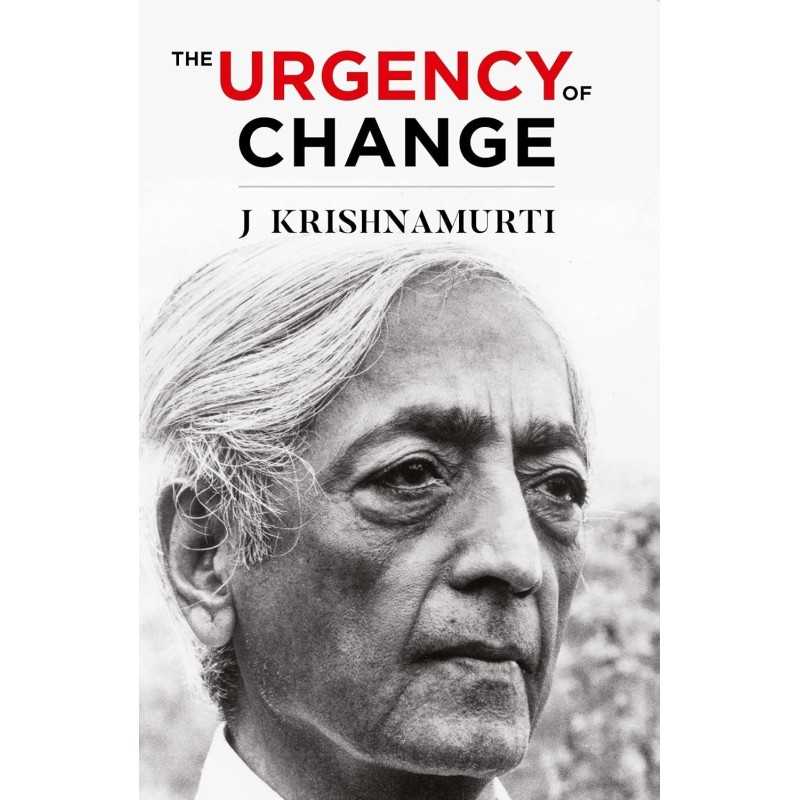
The Urgency of Change
- Write a review
The Urgency of Change takes the reader on a deeply personal journey through inner doubt and outer hostility. It is a book for everyone who longs to find a synthesis between the potential beauty of life and the brutal myth mankind too often makes of living
The topics in this book range from conditioning and awareness, fear and God, to morality and art, suffering and seeking. The dialogues here sparkle with a crispness and clarity that would be the delight of any reader who seeks to deepen his understanding of Krishnamurti's teachings; and the art of inquiry through the medium of dialogue finds its finest expression in many passages
key takeaways
- to do away with thought, ego, distinctions, means embracing total freedom
- there is a distinction between knowledge (accumulation of learned facts) and learning (a continual process). Knowledge should be used for technical matters: we build upon the processes and fact accumulations of other human beings. Learning should be used for all other matters, which means all human interaction should operate on the constant flow of learning: not in the past, not in the future, but right here and now, over and over again.
- thought should be limited to productive work and nothing else; it ought to be quiet the rest of the time
- to bring 'I' into conversation, is to create division. There are multiple ways this works: I vs them (literal division, e.g. demonizing in war scenario, me against society), I with own ambitions who use people or knowledge to my own benefit, I who observe the world (while I am the world), my thoughts vs another's thoughts (whereas man really has a collective conceptual world) ...
- there is continuation and there is learning. Continuation is building upon the past (e.g. upon knowledge). If this is the only mode you operate in, you can literally be 'stuck in the past'. Learning is a continual process in the here and now, but can only be accessed when you let go of thought, which is the past recreating or extending itself; learning is the only way to really allow new experiences in your life.
- the quieting of thought is the practice of meditation.
The biggest issue for me was the theoretical nature of the text. I read Pema Chödrön's 'The places that scare you' earlier this year, which was a real eye-opener and a genuine case of 'right book at the right time'. It probably saved me from collapsing into myself, dealing with colossal pressure. Anyway, Chödrön's book is part theoretical, part exercise, and this makes sense: you want to learn about your thought processes, when they surface, how they are shaped, how you can keep them under control. She provides very accessible guides to meditation, and even has CDs for guided meditation sessions. I highly recommend it.
Anyway, as a standard human being, my mind is never still. It's always looking for puzzles to solve, and ways to solve them. So the biggest hurdle for me is quieting the mind. But Krishnamurti does not go into the practical methods to achieve this.
Data sheet
- Language
- English
- Type
- Paper Book

